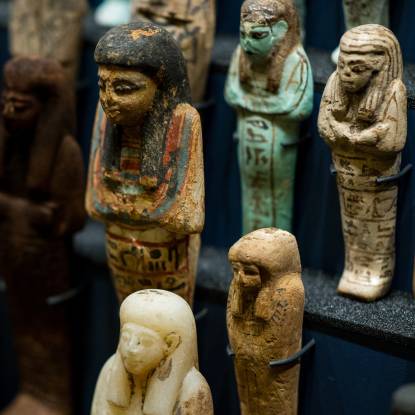Exploring the Unknown

Throughout the coronavirus pandemic we have continually been faced with the unknown. Even now as we are move into our ‘new normal’ we continually ask ourselves - what will happen next? How will we react? The unknown can be terrifying.
But it can also lead to fresh ideas and innovation. Researchers deal with the unknown every day. In fact, they embrace it. Questions will lead to more questions. The pursuit of knowledge is exciting and challenging. Sometimes even when we think we have an answer, it is disproved later.
Our museum collections are continually used for research by our curators, academics and students, who make new discoveries all the time.
So this month on our blog and social media we will be exploring the theme of ‘the unknown’, and what it means to us.
#UCLUnknown
Stories of failure
Our exhibition in the Octagon, FLOP: 13 stories of failure shows how mistakes can lead to unexpected discoveries, including the accidental invention of silly putty.
Listen to the exhibition podcast
Researching our mystery objects
Every year students in UCL’s Collection Curatorship class (as part of their MA in Museum Studies) choose objects from across UCL’s collections to research in a practical project to introduce them to the core skills of a curator: to understand objects and how to research them. In previous years, students have solved the mystery of leech embryo wax models and what were previously known as ‘the Fancy Casts’.
Creating colours from coalfields
The discovery of five new paint colours in ex-coal mines has been developed by UCL Slade School artist Onya McCausland. It has led to the first-ever use of paint derived from UK coal mine water treatment (see image above).
Find out more
Help us translate Jeremy Bentham’s manuscripts
Jeremy Bentham was a huge writer, producing over 100,000 manuscripts throughout his life. We are still transcribing them today! At the latest count, volunteers have transcribed more than 20,000 pages of Bentham's writings.
Find out how you can get involved
 Close
Close



